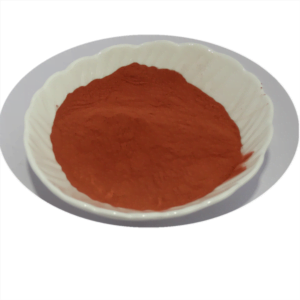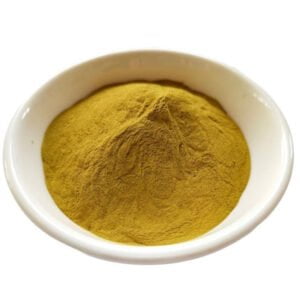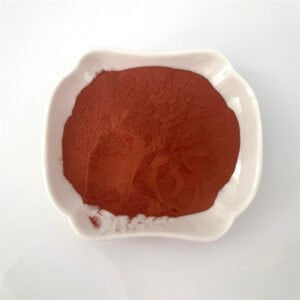Titanium Aluminide Powder
Table of Contents
Titanium aluminide refers to a class of lightweight, high strength intermetallic alloys composed of titanium and aluminum. This guide serves as a reference on titanium aluminide in powder format – exploring manufacturing methods, compositions, key traits and parameters, suppliers and pricing, diverse end-use applications across industries, FAQs and more.
Overview of Titanium Aluminide Powder
Titanium aluminide powder comprises specialty titanium-rich alloys containing significant aluminum. Key attributes:
- Composition: Titanium + aluminum + other elements
- Production: Gas atomization into fine powder
- Particle shape: Mostly spherical
- Grain sizes: From microns to 100 microns
- Density: 3.7-4.25 g/cm3
- Key traits: Extreme heat and oxidation resistance
Blending titanium and aluminum produces unique lightweight crystalline structures with enhanced properties over conventional alloys – lending versatility in high performance applications up to ~750°C.
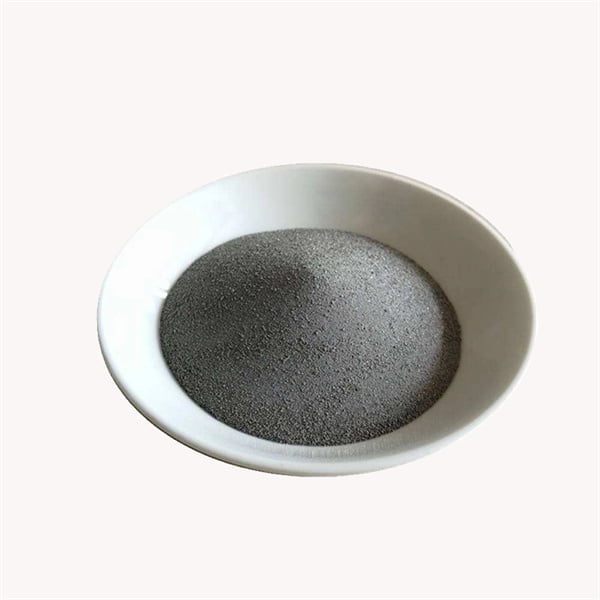
Types of Titanium Aluminide Powder
By tuning aluminum content and adding modifiers, titanium aluminides take on specific microstructures and characteristics:
| Type | Composition | Traits |
|---|---|---|
| α2 Ti3Al | Ti-25Al | Higher strength Good corrosion resistance |
| γ TiAl | Ti-48Al | Best oxidation resistance Good creep strength |
| α2 + γ TiAl | Ti-45Al | Balances strength, ductility and environmental protection |
Table 1: Common titanium aluminide powder variants by metallic constituents and traits
The γ-TiAl system offers the best specific yield strength at high temperatures while maintaining lower density versus nickel superalloys. Additional elements further tune properties.
Production Methods
Commercial manufacturing processes to create titanium aluminide powder include:
- Gas Atomization – Inert gas disintegrates molten alloy stream into fine droplets
- Plasma Rotating Electrode Process – Centrifugal disintegration of spun electrified melt
- Inert Gas Condensation – Vaporized alloy condenses into nanoparticles
Tuning processing parameters like gas flow rates, pressure differentials and cooling profiles allows tailoring powder particle size distribution, grain morphology and internal microstructures to match application requirements.
Properties of Titanium Aluminide Powder
Physical Properties
| Attribute | Details |
|---|---|
| State | Solid powder |
| Color | Dark gray |
| Odor | Odorless |
| Crystal Structure | Tetragonal, hexagonal, orthorhombic depending on alloy |
| Density | 3.7-4.25 g/cm3 |
Mechanical Properties
| Measure | Value |
|---|---|
| Tensile Strength | 500-900 MPa |
| Compressive Strength | 1000-1800 MPa |
| Hardness | 350-450 HV |
| Fracture Toughness | 15-35 MPa√m |
Thermal Properties
| Metric | Rating |
|---|---|
| Melting Point | 1350-1450°C |
| Thermal Conductivity | 4-8 W/mK |
| Coefficient of Thermal Expansion | 11-13 x10-6 K-1 |
| Max Service Temperature | 750°C (~1400°F) |
Table 2: Overview of key titanium aluminide powder physical, mechanical and thermal properties
This exceptional combination of low density with heat and environment resistance facilitates usage in aircraft, automotive, energy and chemical systems.
Specifications
Titanium aluminide powder is commercially available meeting standard specifications:
Size Distribution
| Standard | Microns | Production Method |
|---|---|---|
| Fine | 0-25 | Gas atomization |
| Medium | 25-45 | Gas atomization |
| Coarse | 45-105 | Plasma rotating electrode |
Chemical Purity
| Grade | Aluminum % | Oxygen ppm |
|---|---|---|
| Standard | 48-50% | 3000+ |
| High | 45-50% ± 2% | <3000 ppm |
| Ultra high | 45-50% ± 1% | <1000 ppm |
Table 3: Typical size ranges, aluminum content and purity levels for titanium aluminide powder
More stringent screening on particle sizes, composition consistency and oxygen impurities supports precision performance but increases costs.
Titanium Aluminide Powder Manufacturers
Specialized producers offer commercial volumes across purity and size profiles:
| Company | Brand Names | Price Range |
|---|---|---|
| Sandvik | TiAl Osprey® | $140-450/kg |
| Praxair | Titanium Aluminides | $100-425/kg |
| Atlantic Equipment Engineers | AEE TiAl powders | $130-500/kg |
| Special Metals Corp | Prealloyed TiAl | $155-425/kg |
Table 4: Select reputable titanium aluminide powder manufacturers and price ranges
Pricing varies based on purchase quantities, testing/certification requirements, custom alloy optimization and more – request current quotes directly. Small samples may be available.
Applications of Titanium Aluminide Powder
| Sector | Uses | Benefits |
|---|---|---|
| Aerospace | Jet engine components, airframes | Weight savings, temp resistance |
| Automotive | Turbocharger wheels, valves | Boost efficiency |
| Industrial | Heat exchangers, reactors | Gain performance |
| Oil & Gas | Downhole tools, subsea | Reliability improvements |
Table 5: Major application areas for titanium aluminide leveraging key powder properties
Lighter weight with better environmental stability at high temperatures over incumbent materials supports adoption despite higher unit costs.
Comparative Pros and Cons
Advantages of Titanium Aluminides
- Lower density than nickel superalloys – 25-35% less weight
- Retains over 50% higher specific strength up to 750°C
- Superior oxidation and burn resistance versus steels
- Processability into net shape components
Challenges to Overcome
- High materials cost – 5X+ cost of steel alternatives
- Poorer room temperature ductility/fracture limits
- Requires protective coatings in some chemistries
- Modeling and quality assurance efforts in additive techniques
Balancing enhanced heat performance traits against fabrication and per-part pricing factors drives application viability.
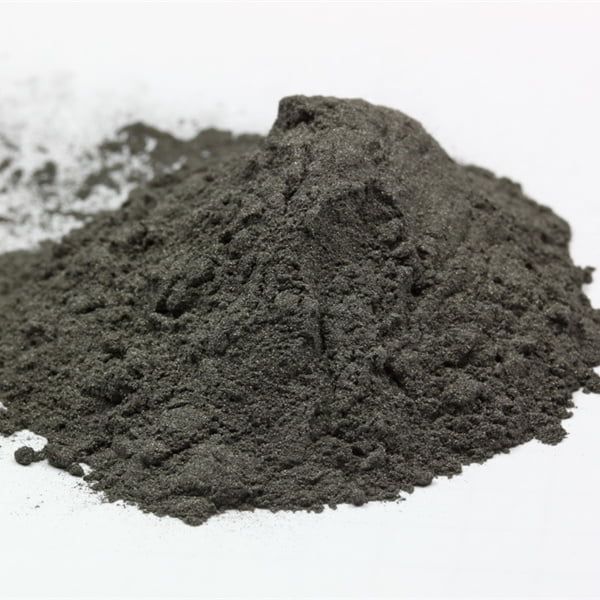
FAQs
Q: What industries use titanium aluminide powder vs bulk forms?
A: Fine powder morphologies specifically suit additive manufacturing to construct complexaerospace and automotive components. Bulk forms are utilized for ingot metallurgy.
Q: What post-processing is used on additively manufactured titanium aluminide parts?
Most additively manufactured components require hot isostatic pressing (HIP) and heat treatments to achieve full density consolidation and optimal microstructures. Minimal machining is then performed.
Q: How long can unused titanium aluminide powder last in sealed storage?
A: Stored properly in inert environments, titanium aluminide powder lasts 12-24 months before significant oxidation and degradation affects flow or performance.
Q: What are some research areas for improving titanium aluminides?
A: Efforts continue into modeling solidification dynamics for AM techniques, reducing material costs through alternate production methods, and enhancing room temperature ductility.
Share On
MET3DP Technology Co., LTD is a leading provider of additive manufacturing solutions headquartered in Qingdao, China. Our company specializes in 3D printing equipment and high-performance metal powders for industrial applications.
Inquiry to get best price and customized Solution for your business!
Related Articles
About Met3DP
Recent Update
Our Product
CONTACT US
Any questions? Send us message now! We’ll serve your request with a whole team after receiving your message.

Metal Powders for 3D Printing and Additive Manufacturing
COMPANY
PRODUCT
cONTACT INFO
- Qingdao City, Shandong, China
- [email protected]
- [email protected]
- +86 19116340731










